With next-generation individual genome sequencing for medical reasons comes the ethical issue of uncovering incidental findings about one’s health. Would you like your physician to tell you that you are at risk for Alzheimer’s disease? Responding to an online questionnaire, 1200 Canadians answered that they generally would agree to receive information about high-risk disease disorders […]
Tag: British Columbia
Stopping high sea fishing to increase global catch
Closing the high seas to fishing could improve the distribution of catches globally, according to a new study. Researchers estimate that around 42% of commercial fish spend their time both in high seas and coastal areas, and predict that closure of high seas will result in more of these fish being caught in coastal areas […]
A solution to the medical isotope shortage? 
Radioactive isotopes are used regularly for diagnostic and cancer treatments, but as aging nuclear research reactors are shut down, new ways to create the technetium 99m necessary for medical scans are being investigated. A team of scientists has now confirmed that regular hospital based cyclotrons are able to produce enough technetium-99m, to satisfy the daily […]
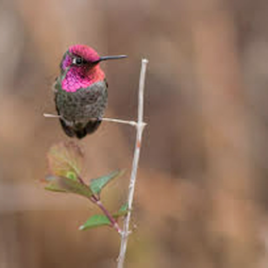
Birds watch where they’re going
Flying birds rely on movements in the surrounding environment to control their position in space, a new study has found. The authors filmed hummingbirds hovering in front of a projection screen and examined the birds’ response to moving bars and spiral patterns compared to static images. The researchers found flying birds are sensitive to movements […]
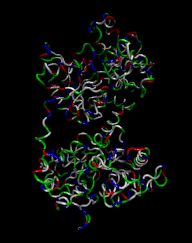
Playing by EAR – how acoustics could help study proteins
A new technique called electronic acoustic Raman (EAR) spectroscopy could improve the way we study proteins, which in turn could help fight diseases like cystic fibrosis. The technique involves using a laser to excite small molecules like proteins; when excited they vibrate and give off sound at a specific frequency. By analysing the sound, researchers […]
Everything you want to know about climate change in three easy lessons
The Pacific Institute for Climate Solutions (PICS) recently released the third and final installment of Climate Insights 101, a free online course designed to help journalists and the public get up to speed on the best available peer-reviewed science about climate change. The new installment, BC Climate Impacts and Adaptation. Through videos and test-your-knowledge sections the […]
Alternative hospital funding can be risky
A review of worldwide experience with an alternative model of hospital funding suggests that it increases the number of patients needing post-acute care. Activity-based funding (ABF) is a system whereby hospitals are paid a set rate for each episode of care, intended to fund the bundle of services provided to patients with particular diagnoses, as […]

Dissolved oxygen is key for underwater forensics
A new study indicates that dissolved oxygen has a big impact on how bodies decay underwater, a finding that could help in forensic investigations. Researchers deployed three pig carcasses outside the Victoria Experimental Network Under the Sea (VENUS), a cabled underwater laboratory with underwater cameras and sensors to record oxygen levels, temperature, pressure, salinity, density […]
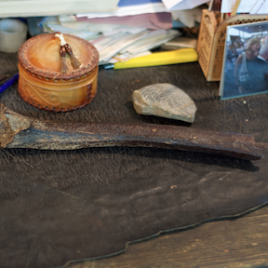
Genome of a 45,000-year-old modern human
Researchers have found that the genome of a 45,000-year-old human from Siberia is quite similar to the genome of modern Native Americans and East Asians and carries similar amount of Neanderthal ancestry. The remains of the Siberian male are believed by the authors to represent the oldest directly radiocarbon-dated modern human outside Africa and the […]
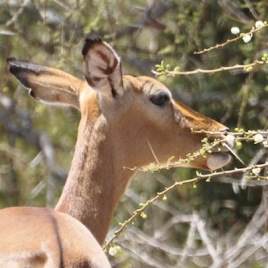
How carnivores impact the African landscape
A new study shows the presence – or absence – of carnivores can have a big impact on how many and what kind of trees grow in a landscape. Working in central Kenya, researchers looked at different tree species – with or without protective thorns – in areas where herbivores get eaten by their predators, […]
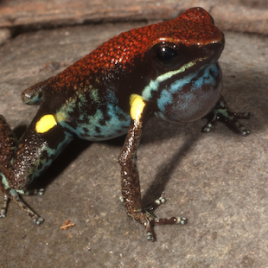
The poisonous singing frog
Poisonous and colourful frogs have more diversified mating calls than their non-poisonous counterparts, a new study shows. Researchers explain that when frogs evolve these kind of anti-predator strategies (bright colours and poison), they decrease the risk of being eaten by predators and are rewarded for more showy mating signals. Original research paper published in Proceedings of […]

China heats up
Eastern China experienced a record-breaking summer heatwave in 2013, but analysis shows that this extreme could soon become the new normal. Researchers looked at temperature records in eastern China from 1950 to 2013 and found that average summer temperatures have increased by 0.82 C during that time. Summers as hot as 2013 are now 60 […]
Climate change will shift fish toward poles
A new analysis using computer models indicates that many commercially important species of fish are moving toward the poles and that some could disappear from the tropics altogether by 2050. The analysis used multiple models and covered 802 species to show that fish ranges are moving at a rate between 15 and 26 km per year. […]
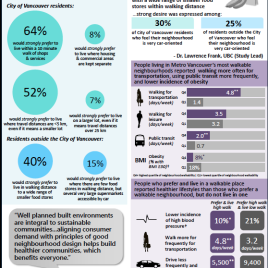
Vancouverites prefer walkable neighbourhoods
A new report from the University of British Columbia shows that Vancouver residents prefers to live in in a neigbourhood where they can walk to shops, groceries and transit, a new report shows. An infographic with the findings is available below. Living in a neighbourhoods designed in such a way to encourage walking is linked […]

‘Upside-down’ water flows keep the Fraser Canyon steep
A new study shows water in certain stretches of the 542-kilometre Fraser Canyon in British Columbia is flowing ‘upside-down’, a discovery that helps explain why the canyon walls remain so steep. Researchers discovered that high velocity water flows down into deep pools and then upwells along the canyon walls, such that the water along the bottom flowing […]
Chemicals could help bee colonies fight mite infestations
Researchers have identified certain chemical compounds that could help fight infestations of the parasitic Varroa destructor mite, a major pest for beekeepers. The mites use smell to distinguish between different worker types in the bee colony, preferring younger ‘nurse’ bees over older foragers. The team found that treating the bees with certain chemical compounds confused […]